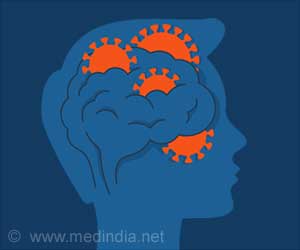COVID-19 could impair the thinking abilities of adults. A new study adds cognitive impairment to the list of post-covid neurological complications.

‘More than 60% of COVID survivors show cognitive impairment. Of these, about one in three have severe cognitive impairment.’





The team tested 400 COVID survivors from Argentina. All of them were over 60 years of age. Among the four hundred subjects, more than 60% showed some sort of cognitive impairment. Of these 60 % participants, about one in three had severe cognitive impairment.
The cognitive impairment was also seen even in recovered COVID-19 patients who had only a mild cold or respiratory problem after the SARS-CoV-2 infection.
"It is not known whether the impairment, such as forgetfulness and language difficulty, will be progressive," said Dr. de Erausquin.
SARS-CoV-2 enters the nervous system primarily through the olfactory bulb, which contains the brain cells that react to smell. "Persistent lack of smell is associated with brain changes. Once the virus has affected the olfactory bulb and caused effects there, other places in the brain that are connected to it also become abnormal, either in function or structure or both," added Dr. de Erausquin.
Advertisement
"That is worrisome. This could be the start of a dementia-related epidemic fueled by this latest coronavirus." highlighted Dr. de Erausquin.
Advertisement
Source-Medindia















